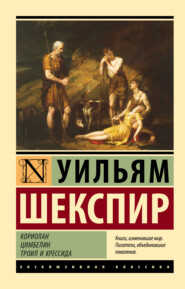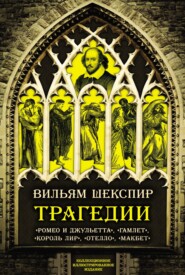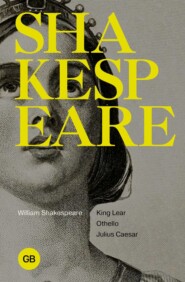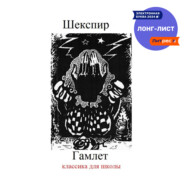По всем вопросам обращайтесь на: info@litportal.ru
(©) 2003-2025.
✖
Love's Labour's Lost
Настройки чтения
Размер шрифта
Высота строк
Поля
MOTH. By saying that a costard was broken in a shin.
Then call'd you for the l'envoy.
COSTARD. True, and I for a plantain. Thus came your argument
in;
Then the boy's fat l'envoy, the goose that you bought;
And he ended the market.
ARMADO. But tell me: how was there a costard broken in a shin?
MOTH. I will tell you sensibly.
COSTARD. Thou hast no feeling of it, Moth; I will speak that
l'envoy.
I, Costard, running out, that was safely within,
Fell over the threshold and broke my shin.
ARMADO. We will talk no more of this matter.
COSTARD. Till there be more matter in the shin.
ARMADO. Sirrah Costard. I will enfranchise thee.
COSTARD. O, Marry me to one Frances! I smell some l'envoy, some
goose, in this.
ARMADO. By my sweet soul, I mean setting thee at liberty,
enfreedoming thy person; thou wert immured, restrained,
captivated, bound.
COSTARD. True, true; and now you will be my purgation, and let
me
loose.
ARMADO. I give thee thy liberty, set thee from durance; and, in
lieu thereof, impose on thee nothing but this: bear this
significant [giving a letter] to the country maid Jaquenetta;
there is remuneration, for the best ward of mine honour is
rewarding my dependents. Moth, follow. Exit
MOTH. Like the sequel, I. Signior Costard, adieu.
COSTARD. My sweet ounce of man's flesh, my incony Jew!
Exit MOTH
Now will I look to his remuneration. Remuneration! O, that's
the
Latin word for three farthings. Three farthings-
remuneration.
'What's the price of this inkle?'– 'One penny.'– 'No, I'll
give
you a remuneration.' Why, it carries it. Remuneration! Why,
it is
a fairer name than French crown. I will never buy and sell
out of
this word.
Enter BEROWNE
BEROWNE. My good knave Costard, exceedingly well met!
COSTARD. Pray you, sir, how much carnation ribbon may a man buy
for
a remuneration?
BEROWNE. What is a remuneration?
COSTARD. Marry, sir, halfpenny farthing.
BEROWNE. Why, then, three-farthing worth of silk.
COSTARD. I thank your worship. God be wi' you!
BEROWNE. Stay, slave; I must employ thee.
As thou wilt win my favour, good my knave,
Do one thing for me that I shall entreat.
COSTARD. When would you have it done, sir?
BEROWNE. This afternoon.
COSTARD. Well, I will do it, sir; fare you well.
BEROWNE. Thou knowest not what it is.
COSTARD. I shall know, sir, when I have done it.
BEROWNE. Why, villain, thou must know first.
COSTARD. I will come to your worship to-morrow morning.
BEROWNE. It must be done this afternoon.
Hark, slave, it is but this:
The Princess comes to hunt here in the park,
And in her train there is a gentle lady;
When tongues speak sweetly, then they name her name,
And Rosaline they call her. Ask for her,
And to her white hand see thou do commend
This seal'd-up counsel. There's thy guerdon; go.
[Giving him a shilling]
COSTARD. Gardon, O sweet gardon! better than remuneration; a
'leven-pence farthing better; most sweet gardon! I will do
it,
sir, in print. Gardon- remuneration! Exit
BEROWNE. And I, forsooth, in love; I, that have been love's
whip;
A very beadle to a humorous sigh;
A critic, nay, a night-watch constable;
A domineering pedant o'er the boy,
Than whom no mortal so magnificent!
This wimpled, whining, purblind, wayward boy,
This senior-junior, giant-dwarf, Dan Cupid;
Regent of love-rhymes, lord of folded arms,
Th' anointed sovereign of sighs and groans,
Liege of all loiterers and malcontents,
Dread prince of plackets, king of codpieces,
Sole imperator, and great general
Of trotting paritors. O my little heart!
And I to be a corporal of his field,
And wear his colours like a tumbler's hoop!
What! I love, I sue, I seek a wife-
A woman, that is like a German clock,
Still a-repairing, ever out of frame,
And never going aright, being a watch,
But being watch'd that it may still go right!
Nay, to be perjur'd, which is worst of all;
And, among three, to love the worst of all,
Then call'd you for the l'envoy.
COSTARD. True, and I for a plantain. Thus came your argument
in;
Then the boy's fat l'envoy, the goose that you bought;
And he ended the market.
ARMADO. But tell me: how was there a costard broken in a shin?
MOTH. I will tell you sensibly.
COSTARD. Thou hast no feeling of it, Moth; I will speak that
l'envoy.
I, Costard, running out, that was safely within,
Fell over the threshold and broke my shin.
ARMADO. We will talk no more of this matter.
COSTARD. Till there be more matter in the shin.
ARMADO. Sirrah Costard. I will enfranchise thee.
COSTARD. O, Marry me to one Frances! I smell some l'envoy, some
goose, in this.
ARMADO. By my sweet soul, I mean setting thee at liberty,
enfreedoming thy person; thou wert immured, restrained,
captivated, bound.
COSTARD. True, true; and now you will be my purgation, and let
me
loose.
ARMADO. I give thee thy liberty, set thee from durance; and, in
lieu thereof, impose on thee nothing but this: bear this
significant [giving a letter] to the country maid Jaquenetta;
there is remuneration, for the best ward of mine honour is
rewarding my dependents. Moth, follow. Exit
MOTH. Like the sequel, I. Signior Costard, adieu.
COSTARD. My sweet ounce of man's flesh, my incony Jew!
Exit MOTH
Now will I look to his remuneration. Remuneration! O, that's
the
Latin word for three farthings. Three farthings-
remuneration.
'What's the price of this inkle?'– 'One penny.'– 'No, I'll
give
you a remuneration.' Why, it carries it. Remuneration! Why,
it is
a fairer name than French crown. I will never buy and sell
out of
this word.
Enter BEROWNE
BEROWNE. My good knave Costard, exceedingly well met!
COSTARD. Pray you, sir, how much carnation ribbon may a man buy
for
a remuneration?
BEROWNE. What is a remuneration?
COSTARD. Marry, sir, halfpenny farthing.
BEROWNE. Why, then, three-farthing worth of silk.
COSTARD. I thank your worship. God be wi' you!
BEROWNE. Stay, slave; I must employ thee.
As thou wilt win my favour, good my knave,
Do one thing for me that I shall entreat.
COSTARD. When would you have it done, sir?
BEROWNE. This afternoon.
COSTARD. Well, I will do it, sir; fare you well.
BEROWNE. Thou knowest not what it is.
COSTARD. I shall know, sir, when I have done it.
BEROWNE. Why, villain, thou must know first.
COSTARD. I will come to your worship to-morrow morning.
BEROWNE. It must be done this afternoon.
Hark, slave, it is but this:
The Princess comes to hunt here in the park,
And in her train there is a gentle lady;
When tongues speak sweetly, then they name her name,
And Rosaline they call her. Ask for her,
And to her white hand see thou do commend
This seal'd-up counsel. There's thy guerdon; go.
[Giving him a shilling]
COSTARD. Gardon, O sweet gardon! better than remuneration; a
'leven-pence farthing better; most sweet gardon! I will do
it,
sir, in print. Gardon- remuneration! Exit
BEROWNE. And I, forsooth, in love; I, that have been love's
whip;
A very beadle to a humorous sigh;
A critic, nay, a night-watch constable;
A domineering pedant o'er the boy,
Than whom no mortal so magnificent!
This wimpled, whining, purblind, wayward boy,
This senior-junior, giant-dwarf, Dan Cupid;
Regent of love-rhymes, lord of folded arms,
Th' anointed sovereign of sighs and groans,
Liege of all loiterers and malcontents,
Dread prince of plackets, king of codpieces,
Sole imperator, and great general
Of trotting paritors. O my little heart!
And I to be a corporal of his field,
And wear his colours like a tumbler's hoop!
What! I love, I sue, I seek a wife-
A woman, that is like a German clock,
Still a-repairing, ever out of frame,
And never going aright, being a watch,
But being watch'd that it may still go right!
Nay, to be perjur'd, which is worst of all;
And, among three, to love the worst of all,

















